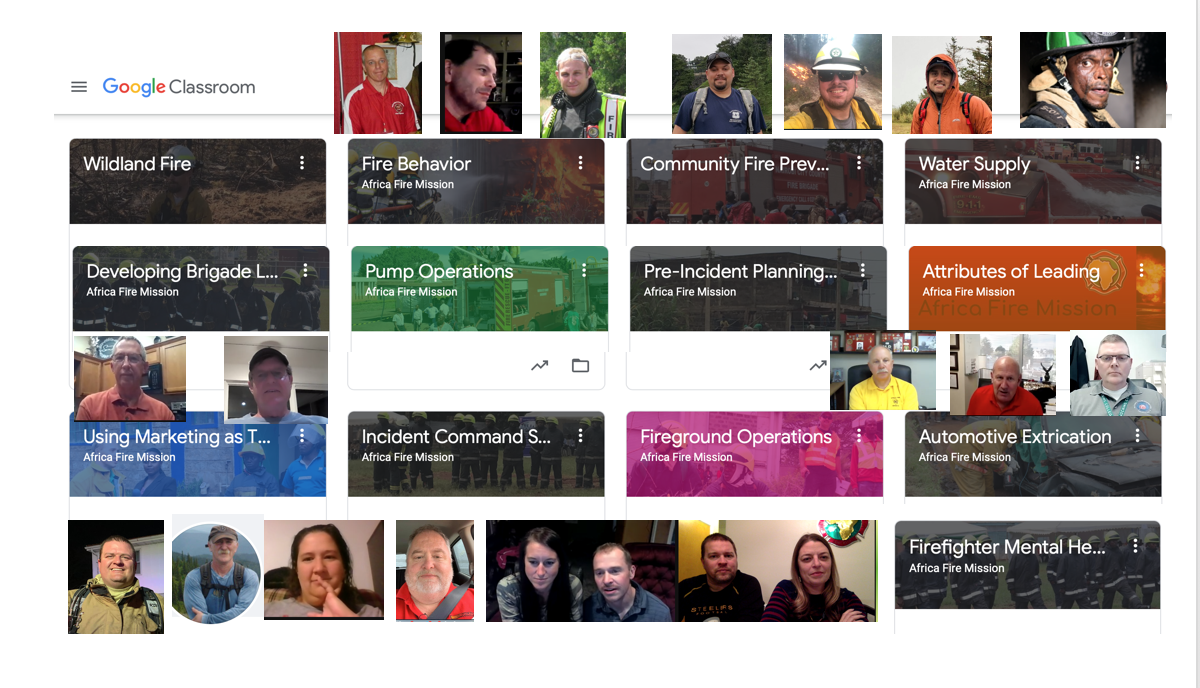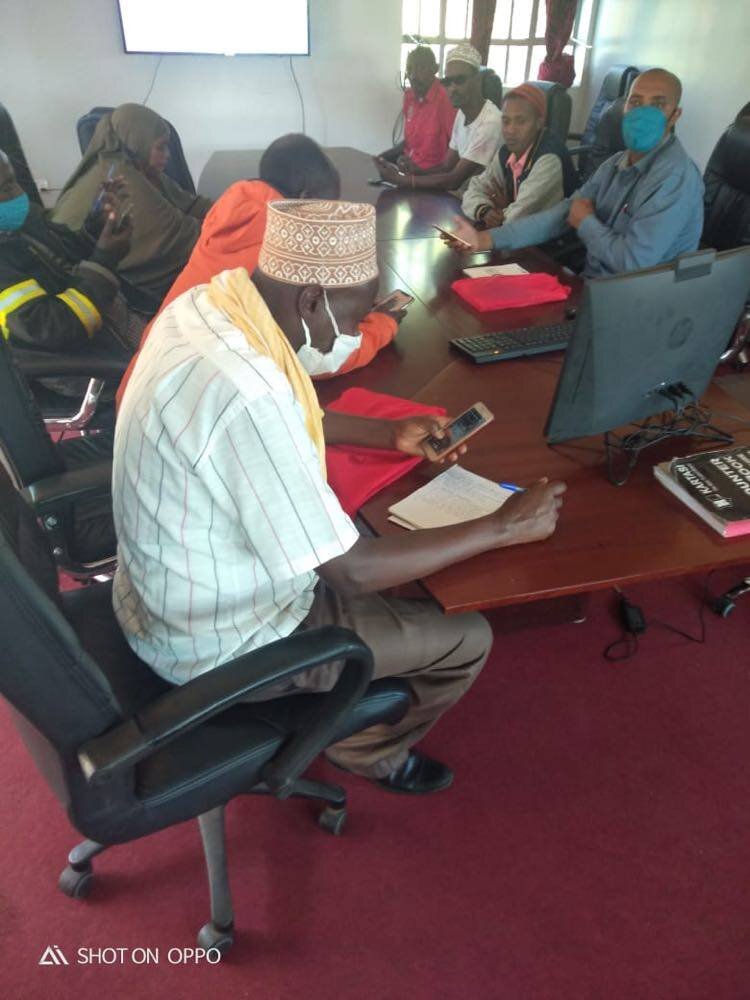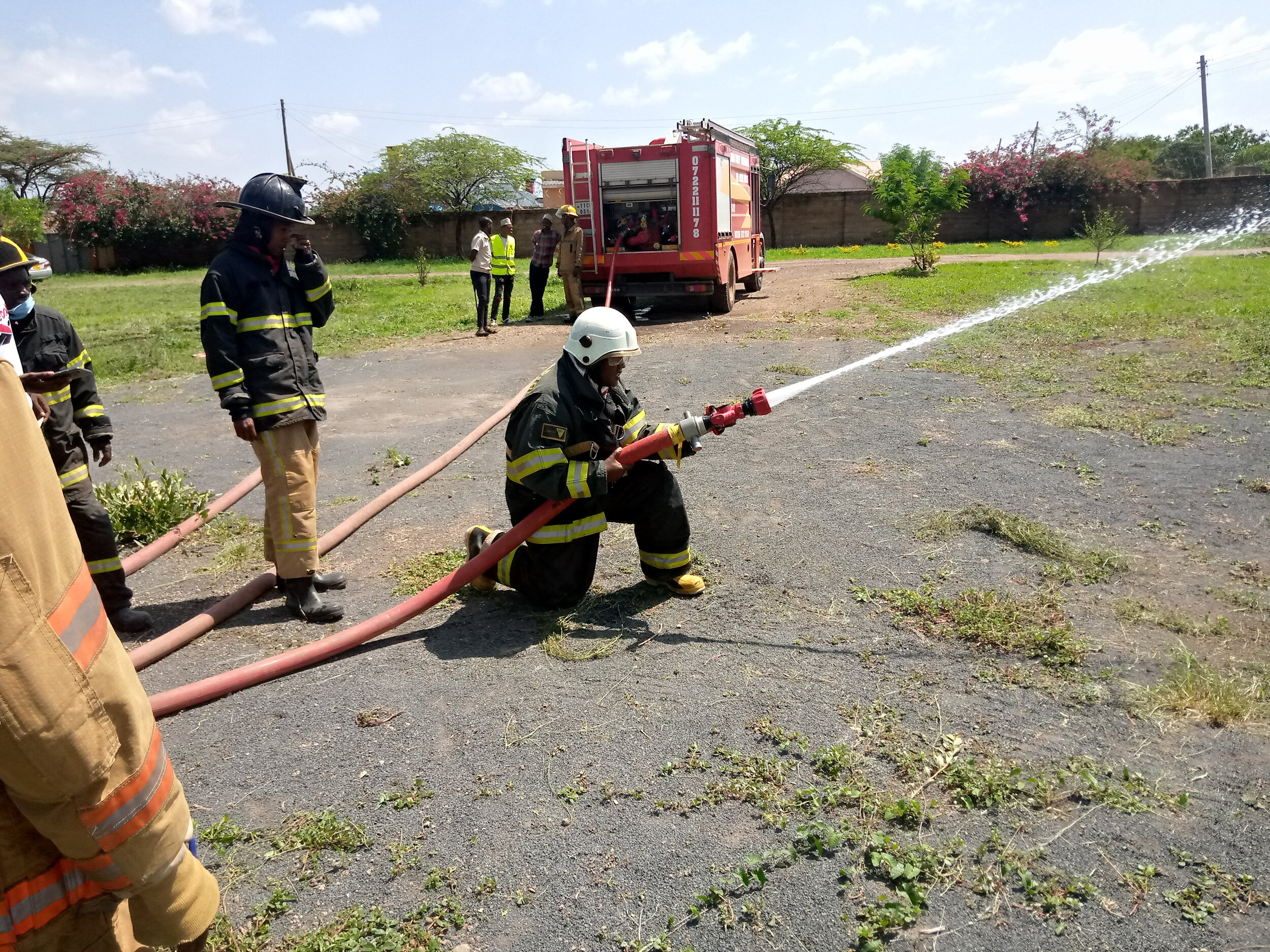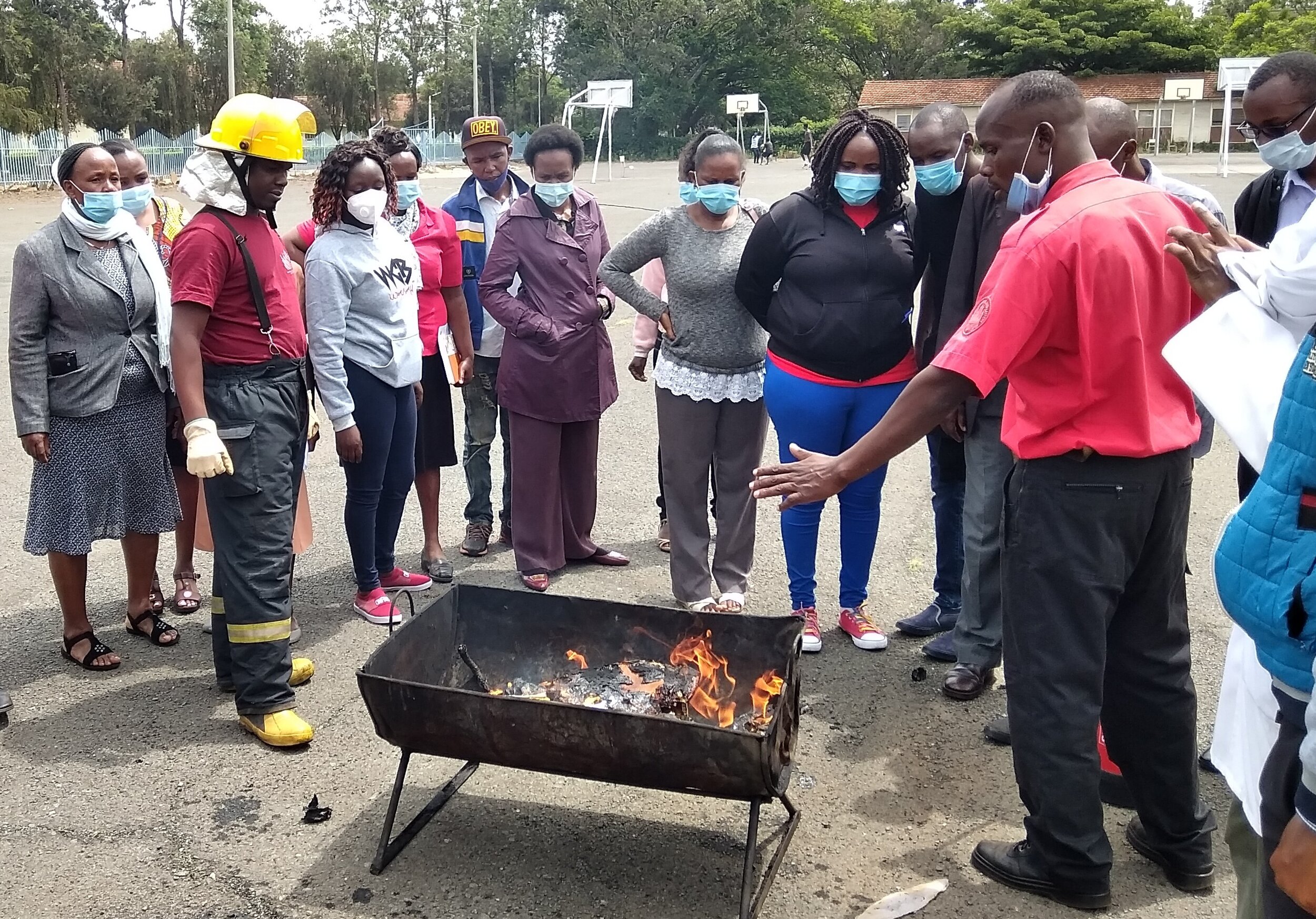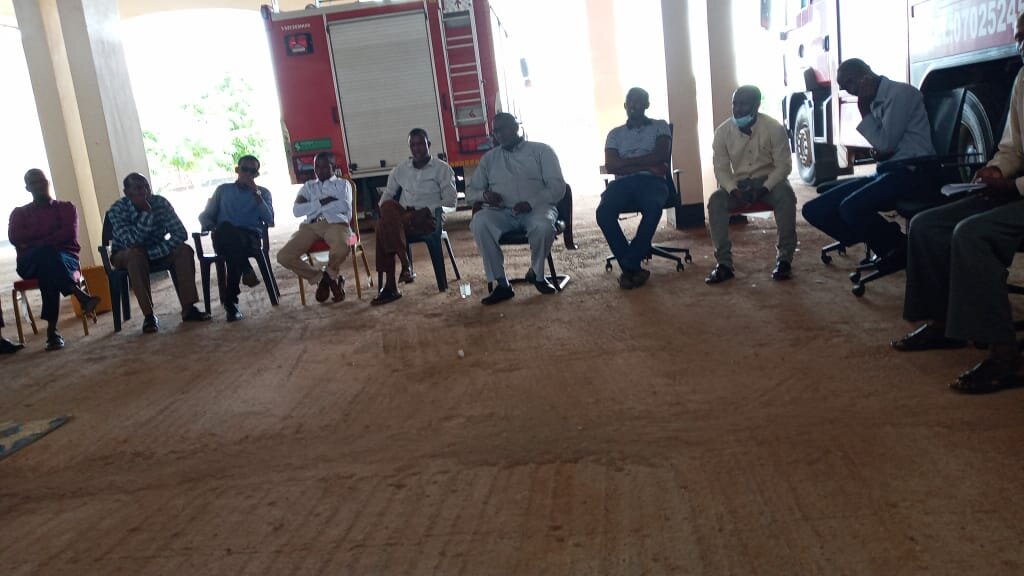by: Hank Clemmensen, Board Member AFM; Retired Fire Chief, Palatine Rural Fire Protection District, IL
What a year 2020 has been in the United States, from COVID-19 to the protests and riots to some of the worst Western wildfires and hurricanes in the golf shores. At times, we forget that it hasn’t been any better in other parts of the world and some of those places are not as prepared to handle these types of disasters.
This is one of driving forces behind what we do at the Africa Fire Mission, why since 2012 we have traveled halfway around the world to help support the fire service in Africa. I’ve been participating in team trips with AFM since 2015. During the fall of 2019, I spent more than 5 weeks in Africa working with fire fighters in Zambia and Kenya, sharing leadership skills that I have learned in the United States during my career in the fire service. As difficult as that was for 5 weeks being in different countries and away from family, I would almost prefer it then teaching virtually.
Although Kenyans speak English, they prefer to speak Swahili with their own dialytic. When teaching in person, you pick up quick on their expression when you say something that they don’t understand. However, when doing a virtual class, not until you get their homework or quiz back that you realize they missed some of main points of the lecture.
It was not until late summer that the final decision was made that we would not be traveling, and we were going to do a virtual symposium for the firefighters in Kenya. Now how do we this virtual online training with volunteer instructors, no budget for IT support, little or no experience with putting together a virtual training symposium, and about 4 months to put it all together. Not to mention the 9-hour time difference and the limited internet access in Kenya.
My first thought was that if my grandkids can do remote learning at home, I should be able to handle one forty-hour class. A big thanks to Nancy Moore and the hours she put into setting up Google Classroom for this virtual learning. The first challenge was to learn all I could about Google Classroom, and then figure out how to record the training since it would not be practical to try to do this live with the time difference. Then of course, editing of those videos we recorded, which was a real learning process. Let us not forget we had to come up with the class content, quizzes, and homework. Now I remember why I gave up on secondary education and went into the fire service.
The good news was that most of the instructors for the different classes worked in teams. I was fortunate enough to have Chief Kevin Milan, with the South Metro Fire Rescue in Colorado and Rick Best from the National Fallen Firefighters Foundation working with me on the Leadership class. We created are videos with Zoom, which allowed us to have guest speakers join in and with some of my new video editing skills, it looked like we did it all in one take.
Another big issue was Internet access for our students and having enough band width to play all the videos and being to download the Google Classroom documents. It appeared that most of the students used their cell phones to access Google and complete their homework assignments/quizzes. It was amazing to see how hard they worked to make sure that homework was completed and submitted. Although we may have better Internet access in the US, the firefighters in Africa really have the drive to make the technology work for them.
Being the first virtual Fire Symposium in Africa by Africa Fire Mission with more than 600 students from around the world (more than 16 countries represented), 20 volunteer instructors, and in the middle of a Covid-19 pandemic, I believe it was a great success. Firefighters in Africa have proven again that they are extremely motivated to continue their mission to learn and improve the fire service their countries. Every year I make new friends and learn so much from our brothers and sisters in Africa which is why I look forward to returning to Africa in the Fall of 2021.
For more information about AFM’s Mission’s in 2021 check out: Join a Mission



